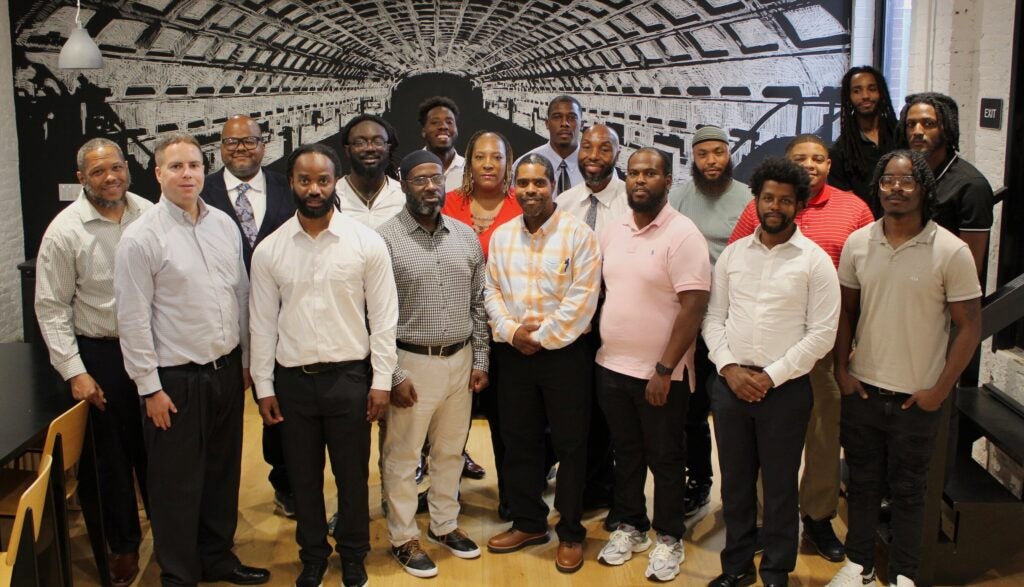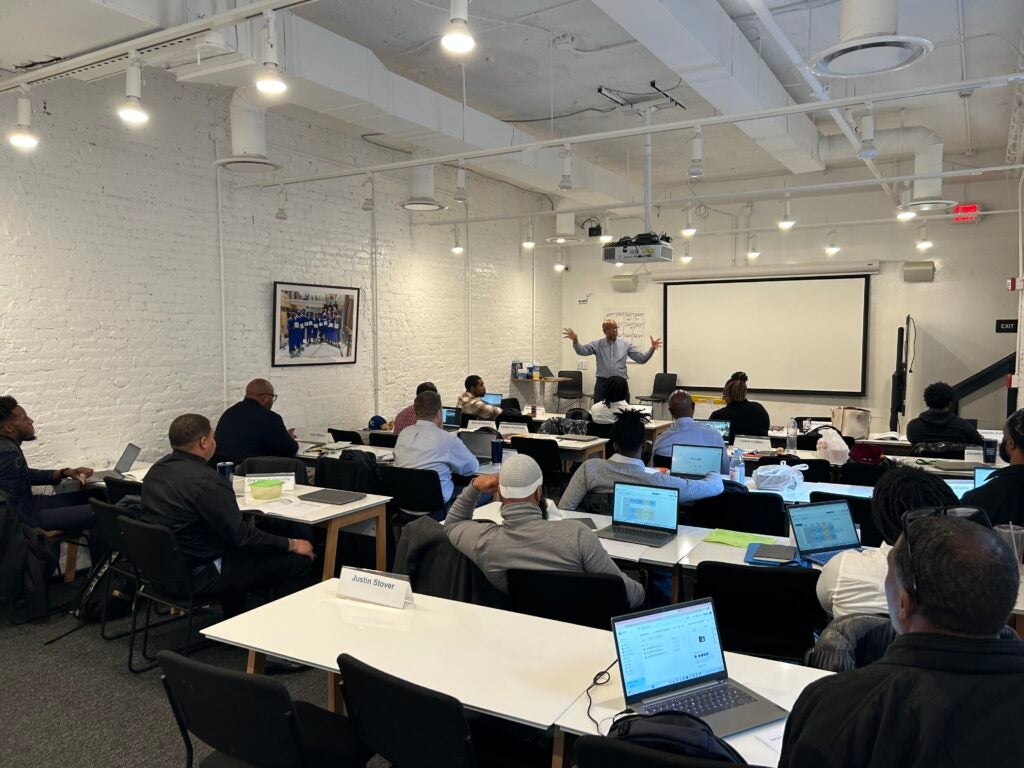Pivot Welcomes Sixth Cohort
Posted in News

The Georgetown Pivot Program kicked off its sixth cohort on Oct. 2, with 18 new Fellows embarking on their career development journey. Over the next nine months, the Fellows will gain the skills they need to succeed in the modern workplace or launch businesses of their own.
“We are trying to position our Fellows for job opportunities that better match their skills and passions, and at the same time, challenge long-held beliefs and practices on the part of employers about individuals with a past conviction,” said Pivot’s Executive and Academic Director Alyssa Lovegrove.
This year, the program curriculum will have a greater focus on technology and digital literacy, in light of the increased use of AI technologies like ChatGPT in the workplace. Pivot will also focus on the skills necessary to work effectively in a hybrid or remote work environment, a product of the COVID-19 pandemic that is here to stay.
“From a practical standpoint, this means being able to work unsupervised, manage competing commitments, making sure you are building productive relationships with team members and supervisors,” Lovegrove said.
Pivot has maintained its reputation as a leading program in the reentry space in Washington, D.C. Since its first cohort, the program has adjusted its curriculum according to the ever-changing needs of returning citizens as they reenter the workforce.
“As we have worked with successive cohorts, we have developed a better understanding of their educational and vocational needs, and have adapted our curriculum accordingly,” Lovegrove said. “Much more of our time with the Fellows is focused on personal and professional development, making sure the Fellows have the foundational skills needed to manage their own careers and to respond to future opportunities.”

A couple of weeks into the program, Pivot Fellows are already feeling the positive effects of education in the classroom. Fellow Kenneth Sanders said the professors have been hands-on and helped him understand the coursework and business concepts.
“The way things are being broken down and taught to me, and the way the professors are taking the time to teach this stuff to us, I feel like I’m learning it and I’m not going to give up,” Sanders said.
Pivot was created to equip returning citizens with the business skills necessary to succeed as employees or entrepreneurs. This year, some of the Fellows like Sanders hope to use what they learn in the Pivot classroom to open businesses of their own.
“I want a business that could succeed and that I could take to different heights,” Sanders said. “In order for me to do that, I think I need the proper steps, formal education, and examples from people who’ve been through here.”
Since the program launched in 2018, 66 Fellows have graduated, and over 90 percent were employed within three months of completing the program. The success of Pivot graduates shows current Fellows the impact the program can have on their personal and professional lives.
“It inspires me, it motivates me to get through the program,” Pivot Fellow Makisha Sanders said of the alumni she’s met so far. “I feel comfortable. So I’m ready.”
